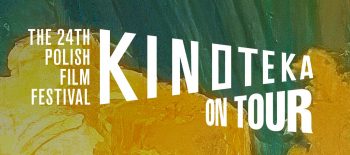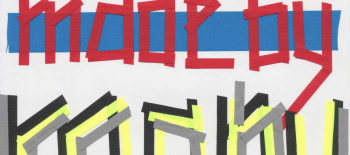This year’s languages are:
- Italian (mentored by Howard Curtis)
- Japanese (mentored by Juliet Winters Carpenter)
- Korean (mentored by Anton Hur)
- Latvian (mentored by Kaija Straumanis)
- Norwegian (mentored by Kari Dickson)
- Polish (mentored by Antonia Lloyd-Jones)
- Russian (mentored by Oliver Ready)
- Swiss German (mentored by Jamie Lee Searle)
- 2 x Visible Communities Mentorships: one mentorship for a UK-based Black or Brown literary translator and one for a UK-based literary translator from the diaspora, heritage or community languages of the UK(mentored by either Meena Kandasamy or Sawad Hussain)
- British Centre for Literary Translation and British Council Mentorship: one mentorship for a literary translator currently resident in a country on the OECD list of countries qualifying for Official Development Assistance, or (in the case of refugees or asylum-seekers from ODA-eligible countries) who has been resident in their destination country for 12 months or fewer (mentored by Canan Marasligil). Two runners-up will receive two digital mentoring sessions each (mentored by Ros Schwartz).
About the programme
Celebrating its eleventh anniversary in 2021, the Emerging Translator Mentorship programme was founded by Daniel Hahn in 2010 with the aim of developing successive new cohorts of literary translators into English, particularly for languages whose literature is currently under-represented in English translation.
The scheme matches up experienced translators with emerging translators for a six-month period during which they work together on practical translation projects, developing their craft through working on a chosen text or texts. The mentor acts as an adviser to the mentee on aspects of life as a professional translator, such as time management, meeting deadlines, managing finances, and understanding contracts, and as an advocate for their mentee with publishers in search of literary translators.
The evidence to date suggests that participation in the scheme represents, in itself, a significant professional development for mentees, with publishers seeing the mentoring cohort as a reliable source of high-quality emerging translators.
What you will receive
Mentees receive a £500 bursary and reasonable travel expenses associated with the mentorship, which vary according to the relative geographical locations of the mentoring pair. The mentorship will include a residential weekend*, access to UK industry events such as International Translation Day and London Book Fair, and a concluding digital showcase to amplify the translators’ work to wider audiences. Samples of mentees’ work will also be published in a print and digital anthology.
National Centre for Writing will facilitate an initial planning meeting between successful applicants and their mentors to agree on the scope of their project and how they will work together. The mentoring period lasts for six months, from October 2021 to March 2022, during which the mentoring pair will meet at least four times, either in person, by virtual media or by phone as appropriate and agreed between them. In between meetings, they will exchange work and comments via email.
*Please note, the format of this event may change due to the Covid-19 situation and might be conducted online or in a hybrid event.
Who can apply?
The programme is open to emerging translators at no cost to them. An emerging translator is someone who has published no more than one full-length work of translation. MFA and MA students in translation can apply, but priority may be given to those who do not have access to the kind of guidance already present in a translation degree programme. Though English is the target language, the emerging translator need not live in the UK (with the exception of the two Visible Communities mentorships; special residency and/or background requirements also apply to the British Centre for Literary Translation and British Council mentorship). We particularly welcome applications for all mentorships from those groups which are currently under-represented in the literary translation community.
How to apply
Applications should be emailed to translation@nationalcentreforwriting.org.uk with the subject ‘ETM 21/22’ and the language or mentorship strand for which you are applying. Queries can be sent to the same email address, addressed ‘FAO Rebecca DeWald’.
The deadline for receipt of entries is 11.59pm BST, Tuesday 31 August 2021.
Your application should include:
- A covering letter stating why you believe you would benefit from a mentorship, and what you can bring to the mentor and mentorship
- Your CV: with a focus on your translation work and experience
- A one-page sample book proposal: this should demonstrate your understanding of the text, author and source culture, but also of the English language market for the translation and its target readership
- A sample translation of up to 2,000 words of prose or up to 100 lines poetry or dramatic text along with the corresponding source text: this can be from your sample book project, or a different text or texts
Applications will be assessed by the relevant mentor; both Visible Communities mentorships will be assessed by both mentors. Their assessment will be based on the following criteria:
- strength of the sample proposal: how well the applicant demonstrates a sophisticated understanding of the text, author, language and possible issues; how original and relevant the text and author are for a translation project into English; the applicant’s awareness of the source language market, the target language market and the English-language readership
- strength of the translation: the applicant’s technical competence in handling the grammatical, syntactical and stylistic features of the source text; how well written, creative and enjoyable to read the translation is; and
- the mentor’s own suitability to best support an applicant.
Successful applicants will be informed by Friday 17 September and will be announced publicly at International Translation Day on Thursday 30 September with a short, pre-recorded video.
Supported by Arts Council England, The Literary Translation Institute of Korea, The Polish Cultural Institute, The Royal Norwegian Embassy, The Russian Institute for Literary Translation, The Italian Cultural Institute, Pro-Helvetia, the Tadashi Yanai Initiative, Latvian Literature, the British Centre for Literary Translation and the British Council.



